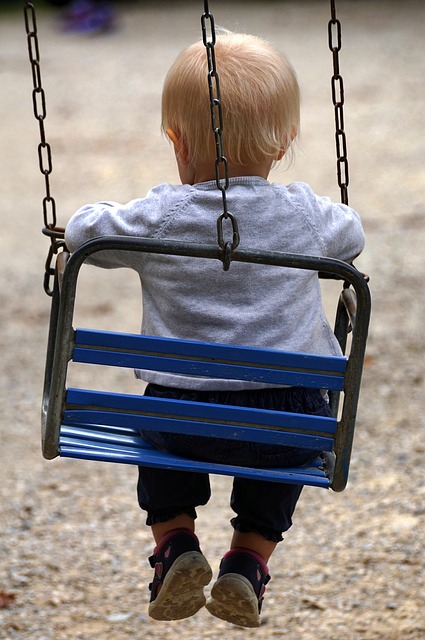Juvenile law is a specialized field dedicated to protecting children's rights and well-being in cases of neglect or abuse. Juvenile lawyers, also known as child welfare or rights attorneys, are experts in navigating complex juvenile court proceedings and advocating for the best interests of young clients. They ensure access to essential resources like foster care and adoption, while working towards systemic changes to prevent future cases of neglect and abuse. These professionals play a vital role in child advocacy, fostering safer environments for vulnerable youth through specialized legal support and holistic services.
In cases of suspected child neglect or abuse, adequate representation is paramount to ensuring justice and the best interests of the child. This article explores the crucial role of juvenile law and child welfare attorneys in safeguarding vulnerable youth. We delve into the significance of legal representation, guiding children and families through the complexities of juvenile court. Topics include understanding child protection systems, navigating foster care legal services, and overcoming challenges in advocacy for child neglect and abuse victims, ultimately emphasizing the vital contributions of child rights lawyers to positive outcomes.
- Understanding Juvenile Law and Its Role in Child Protection
- The Importance of Representation in Child Neglect and Abuse Cases
- Navigating Juvenile Court: Rights and Services for Children
- Strategies and Challenges for Child Welfare Attorneys in Advocacy
Understanding Juvenile Law and Its Role in Child Protection

Juvenile law plays a pivotal role in safeguarding the rights and well-being of children, especially those facing neglect or abuse. This legal framework is designed to ensure that minors receive the necessary protection and support within the justice system. When a child is suspected of being neglected or abused, a juvenile lawyer steps into the scene, acting as their advocate and protector. Their expertise lies in navigating the complexities of juvenile court proceedings, ensuring that every child’s unique needs are addressed.
The primary goal of these legal professionals is to promote child welfare and ensure children have access to the resources they require, including foster care services or potential adoption options. A skilled child rights lawyer will work tirelessly to defend their client’s best interests, while also advocating for systemic changes that can prevent future instances of neglect and abuse. Their efforts contribute significantly to child advocacy, fostering a safer and more supportive environment for vulnerable youth.
The Importance of Representation in Child Neglect and Abuse Cases

In cases of child neglect or abuse, representation by a skilled juvenile lawyer is paramount to ensuring justice and safeguarding the rights of young victims. Juvenile law specialists are adept at navigating complex legal systems, particularly in juvenile courts, where proceedings differ significantly from adult trials. They possess the expertise to interpret laws related to child welfare, foster care, and protection, which often involve intricate rules and regulations.
A child neglect attorney or child rights lawyer plays a pivotal role in advocating for the best interests of the child. They can provide vital legal guidance, ensuring that procedures are followed correctly, and the child’s rights are protected throughout the process. Whether it’s representing a child in court, negotiating with social services, or aiding in foster care placement, these lawyers offer specialized support, ultimately contributing to positive outcomes for vulnerable children and families involved in juvenile delinquency cases.
Navigating Juvenile Court: Rights and Services for Children

Navigating Juvenile Court: Rights and Services for Children
When a case of child neglect or abuse comes to light, it’s crucial that children have access to specialized legal representation in the juvenile court system. A juvenile lawyer, also known as a child rights lawyer or child welfare attorney, plays a pivotal role in protecting the interests and ensuring the well-being of young victims. They guide children through complex legal processes, advocating for their rights and helping them understand their position within the court. These lawyers are adept at navigating the nuances of juvenile law, which differs significantly from adult criminal proceedings.
In such cases, children may require various services beyond legal representation. Foster care legal services, for instance, ensure that a child’s placement in foster care is safe, stable, and meets their individual needs. Child advocacy organizations often collaborate with lawyers to provide comprehensive support, including counseling, education, and medical assistance. The ultimate goal is to promote healing and create a supportive environment while ensuring the child’s long-term well-being and success.
Strategies and Challenges for Child Welfare Attorneys in Advocacy

Child welfare attorneys play a pivotal role in advocating for vulnerable children facing neglect or abuse. Their expertise in juvenile law and child protection is instrumental in navigating complex legal systems. These lawyers employ various strategies to ensure the best interests of the child are upheld, including building strong cases through thorough investigations, gathering compelling evidence, and presenting it effectively in juvenile court. They collaborate with social workers, medical professionals, and other experts to provide comprehensive support for their young clients.
However, representing children in these sensitive cases presents unique challenges. Juvenile lawyers must balance the child’s immediate needs with long-term well-being, often dealing with difficult families and complex circumstances. They navigate a maze of regulations and policies related to foster care legal services, ensuring proper placement and support for the child. Moreover, they advocate for systemic changes to prevent child neglect and abuse, pushing for better resources and awareness within the community and juvenile delinquency prevention programs. Effective advocacy requires resilience, cultural sensitivity, and a deep commitment to upholding child rights.
In light of the above discussions, it’s evident that comprehensive representation in cases involving child neglect or abuse is paramount for justice and healing. Juvenile law, with its specific focus on the well-being of minors, plays a crucial role in child protection. Efficient navigation of juvenile court processes, coupled with strategic advocacy by skilled juvenile lawyers, can significantly impact outcomes for vulnerable children. By leveraging legal services tailored to foster care and child welfare, as well as addressing complex issues like juvenile delinquency and child abuse, dedicated child welfare attorneys and child rights lawyers contribute essential child advocacy. These efforts ensure that every child receives the protection and representation they deserve in pursuit of a safe and nurturing environment.
